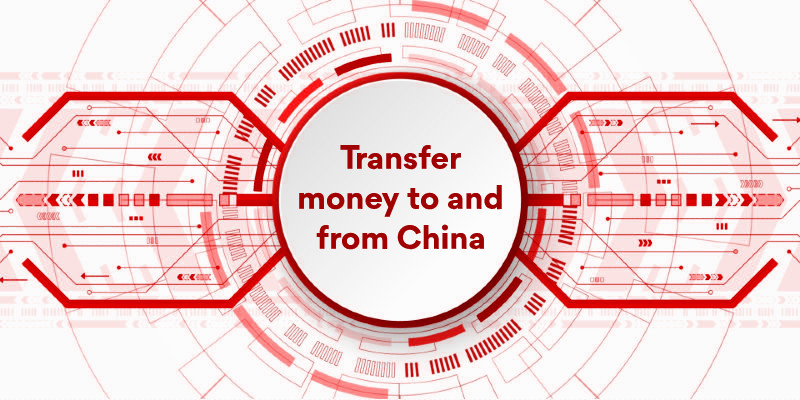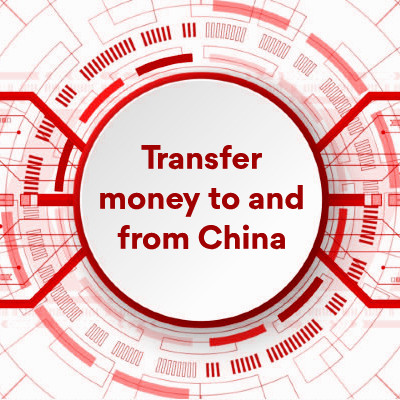


Transfer money to and from China
Can Chinese citizens take / transfer money overseas?
Chinese citizens are limited in the amount of money they can transfer overseas. As of October 2017, the limit was approximately $40,000 per year per person.
A Chinese person can take money in cash or hold money in overseas currencies in a bank account and credit cards. This enables a Chinese citizen to make purchases abroad using Chinese credit cards. Typically using a credit card processed by Union Pay, not Master Card or Visa.
These credit cards also enable Chinese citizens to purchase goods from overseas websites, provided they can process a Union Pay transaction.
This arrangement enables Chinese people to travel worldwide or put their children through overseas education, etc.
Chinese citizens must register any overseas interests, monies, property, etc. This is the same for most countries, where overseas interests must be declared for taxation, etc.
In general, it prevents large sums of money from being moved overseas from China without the agreement of local Chinese authorities.
Business transferring monies to/from China.
Businesses can, in general, freely trade with Chinese companies. A central part of China's success story over the last 50 years is its worldwide trading. If the rules and regulations are followed, the transfer of money in and out of China will be successful.
1. Purchasing of goods from China.
When purchasing goods from China, a Chinese export agent arranges and processes the agreement in China. Therefore, two businesses are often involved in a Chinese trade show stand: the supplier/manufacturer and the Chinese export agent.
Payment terms will always be in overseas currency, commonly $ US. If the payment is made in Chinese RMB, the Chinese export agent cannot claim back the sales tax from the government.
The Chinese export agent will raise the papers with the authorities, including submitting the sales agreement to the bank. The bank will then be able to accept overseas payments and pass them on to Chinese businesses in Chinese RMB.
2. Purchasing goods from overseas countries.
This is generally the same process as purchasing goods from China. The Chinese business making the purchase appoints a Chinese export agent.
The Chinese export agent will raise the necessary papers to enable the import, including registering the purchase agreement with the Chinese bank. Once the bank has accepted the deal, overseas payments can be made, provided the contract terms have been met with supporting papers.
When trading goods to/from China, all countries involved have an audit trail of the transaction through customers; therefore, monitoring and controls are straightforward.
This becomes more complex when trading in services where no goods physically move.
3. Purchasing of service from China.
This is the most underdeveloped market currently. Most examples of services purchased from China will relate to travel or Chinese information technology services.
Most purchases from China are for goods, and therefore, any service fees, such as export agents, shipping insurance, etc., are charged as part of the purchase cost.
The Chinese business will register the agreement with the Chinese bank if services are purchased from China. The Chinese bank / Chinese business can then receive the payment.
4. Purchasing of services from overseas.
The purchase of services from overseas between businesses is straightforward.
The service agreement is registered with the Chinese bank. If the Chinese bank accepts the agreement, payments can be made upon confirmation that the services have been provided, and the invoices are submitted to the bank for payment.
If large sums of money are involved, we recommend seeking advice from a large Chinese export agent and local Chinese legal business. Make a local legal appointment to protect your Chinese interests.
Again, purchasing overseas services by a Chinese citizen, e.g., school fees, is straightforward, provided the purchase value for the year stays within their $40,000 pa. Using their credit card to pay for the transaction is straightforward, provided the overseas business can process Union Pay.
Transferring monies between businesses that are owned / partly owned by overseas company
You can transfer monies in and out of China provided the authorities and the bank create and agree upon the correct papers at the outset of your Chinese business.
When setting up an investment in a Chinese business, we recommend that you appoint someone you trust with good local Chinese trading knowledge and experience. Keeping up with the rules and regulations takes time and money.
Most problems with transferring money between companies are caused by incorrect paperwork or misunderstandings of the rules and regulations.
Please note;
Some overseas banks will hold Chinese RMB currency accounts. While there may be a currency conversion reason for doing this, it has limited commercial use as you can only spend Chinese RMB in China, and Chinese export agents do not like trading in Chinese RMB.
The Chinese authorities fix the RMB exchange rate to $ US. This rate changes occasionally, usually only by a few per cent. Therefore, the money you receive in your local currency will depend on the $us exchange rate.
Last modified: September 2018 - Version 3.3